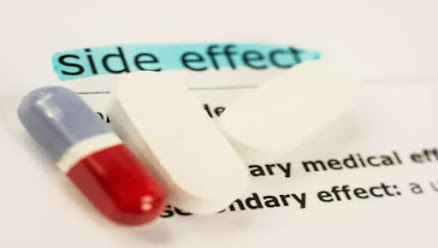Branches of drugs
Branches
of drugs
There are many branches of remedy. Here are a number of
them.
Anatomy is a field of medication that looks at the unique
components that make up the body.
Biochemistry: A biochemist studies chemical
components and how they have an effect on the body.
Biomechanics: This makes a specialty of the
structure of organic systems inside the frame and how they paintings, using a
mechanical method.
Biostatistics: Researchers apply records to
biological fields. This is essential for successful medical studies and plenty
of regions of medical exercise.
Biophysics: This makes use of physics, arithmetic,
chemistry, and biology to version and recognizes the workings of organic
systems.
Cytology: This is a department of pathology that
entails the clinical and medical microscopic study of cells.
Embryology: This branch of biology research the
formation, early boom, and improvement of organisms.
Endocrinology: Scientists look into hormones and
their impact on the body.
Epidemiology: Researchers music the causes,
distribution, and control of diseases in populations.
Genetics: This is the have a look at genes and
their effect on fitness and the body.
Histology: This entails looking at the form of
structures under the microscope. It is likewise known as microscopic anatomy.
Microbiology: This is the look at organisms
that might be too small to peer with the bare eye, referred to as
microorganisms. Aspects of microbiology encompass bacteriology, virology,
mycology (the look at fungi), and parasitology.
Neuroscience: Neuroscientists observe the
apprehensive device and the brain and investigate illnesses of the fearful
machine. Aspects of neuroscience consist of computational modeling and
psychophysics. Some varieties of neuroscience are cognitive neuroscience, cell
neuroscience, and molecular neuroscience.
Nutrition: Nutritionists have a look at how foods and
drinks affect health, and the way they can help deal with, cure, and save you
extraordinary illnesses and conditions.
There are specific styles of scientific laboratory
employees. Some discover the causes of illnesses at the same time as others
examine pollution and their consequences. Sometimes they deal with unsafe
materials.
Pathology: This is the look at disorder. A
pathologist regularly works in a laboratory, wherein they do assessments —
commonly on a pattern of blood, urine, or frame tissue — to help diagnose
diseases and situations.
Radiology: Radiologists use X-rays and scanning
devices for the duration of the diagnostic technique and occasionally as part
of the remedy, too.
Toxicology: A toxicologist researches poisons, what
they're, what consequences they have got at the body, and the way to discover
them.
Physical remedies can improve energy and flexibility in
people who have a situation that affects their musculoskeletal machine.
Occupational remedies can teach humans new and better
approaches to do things bodily. A character who has had a stroke, as an
instance, can also advantage from studying again how to stroll, the use of
techniques that possibly they did now not use before.
Other fields of medicine consist of pharmacology and
pharmacy, nursing, speech therapy, medical exercise control, and many extras.




토토사이트
ReplyDelete먹튀검증
Hi there, just wanted to say, I enjoyed this post. It was funny.
Keep on posting!
Great writing to see, glad that google brought me here, Keep Up cool job
ReplyDelete슬롯
슬롯머신
카지노게임